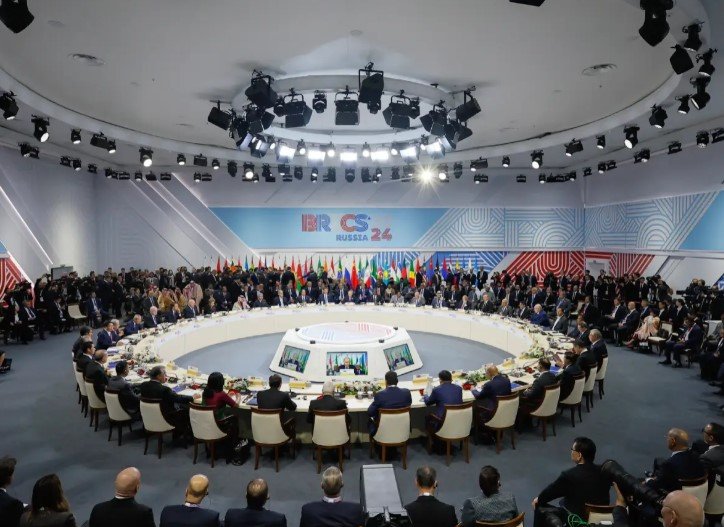Indonesia Joins BRICS: A Major Step Toward Expanding the Influence of Developing Economies
In a groundbreaking move for global cooperation, Brazil has officially welcomed Indonesia as the newest full member of BRICS. This announcement, made on January 6, 2025, marks a significant moment for the group of emerging economies. Indonesia, the world’s fourth-largest nation by population, brings its influence and growth potential to the table, further bolstering BRICS’s position in global economic and political arenas.
Indonesia’s full membership is seen as a testament to its growing importance in Southeast Asia, both as a regional power and a key player in global trade. The country’s membership will undoubtedly play a pivotal role in BRICS’s future strategies and outreach.
BRICS Expands with Indonesia’s Formal Admission
Founded in 2009 by Brazil, Russia, India, and China, the BRICS bloc has consistently worked towards reshaping global governance and promoting South-South cooperation. In 2010, South Africa joined the bloc, further strengthening the partnership between developing economies. In recent years, BRICS has continued to evolve, with countries like Iran, Egypt, and Ethiopia joining last year.

Now, with Indonesia’s admission, the bloc sees another key player added to its ranks. The announcement was made by Brazil, which currently holds the presidency of BRICS for 2024. Brazil’s foreign ministry confirmed that Indonesia’s candidacy was approved by BRICS leaders during their August 2023 summit. However, Indonesia opted to formally join only after the formation of its newly elected government in late 2024.
- Indonesia’s Role: With its growing economy and large population, Indonesia is poised to contribute significantly to BRICS’s economic policies and global initiatives.
- Growing Influence: The addition of Indonesia strengthens BRICS’s ability to shape decisions on global issues, including economic reforms and global governance.
Indonesia’s Key Contribution to BRICS
Indonesia’s entry into BRICS is not just a symbolic gesture but a strategic move that will bring substantial benefits to the bloc. As the largest economy in Southeast Asia, Indonesia is recognized for its robust growth and economic potential. With a population of over 270 million, it plays a central role in the region’s development and stability.
The Indonesian government has long been a vocal advocate for reforming global institutions to reflect the interests of emerging economies. By joining BRICS, Indonesia reinforces the group’s commitment to shaping a more balanced global economic system.
Indonesia is also expected to play a key role in fostering deeper cooperation between BRICS countries, particularly in areas such as trade, infrastructure development, and sustainable growth. Its membership adds another layer to BRICS’s efforts to promote South-South cooperation and enhance global partnerships among developing nations.
- Southeast Asia’s Influence: Indonesia brings Southeast Asia’s voice into BRICS discussions, offering new perspectives on regional development and global economic trends.
- Commitment to Reform: Indonesia shares BRICS’s goal of reforming international institutions to ensure more equitable representation of developing nations.
What’s Next for BRICS with Indonesia on Board?
With Indonesia’s admission, the BRICS bloc is set to undergo significant transformation. The expansion of BRICS is not just about adding more members—it’s about redefining the future of global governance. As the world grapples with shifting power dynamics and rising geopolitical tensions, BRICS continues to grow in both influence and importance.
For Indonesia, joining BRICS opens the door to greater international cooperation and opportunities for growth. The country’s leadership is expected to focus on areas such as climate change, trade agreements, and infrastructure development, areas where BRICS has already made notable progress.
As BRICS evolves, it will likely continue to expand, with more countries from the Global South showing interest in joining the bloc. The inclusion of Indonesia sets a new precedent for BRICS, signaling that the group is serious about its mission to reform global institutions and offer a counterbalance to traditional Western-dominated structures.
The Bigger Picture: A New Era for Developing Nations
Indonesia’s addition to BRICS represents a broader shift in global geopolitics, where developing nations are increasingly seeking a larger role in shaping the international order. The economic rise of Southeast Asia, particularly countries like Indonesia, Vietnam, and the Philippines, reflects a growing trend in the global economy, which is no longer dominated by the West.
By joining BRICS, Indonesia aligns itself with like-minded nations that are advocating for more inclusive global policies. The country’s commitment to economic growth, political stability, and social development makes it an ideal partner for BRICS as the bloc continues to push for a more equitable and sustainable global future.
In the coming years, the BRICS bloc will likely work even harder to implement reforms in key global institutions such as the World Bank, the International Monetary Fund (IMF), and the United Nations (UN), ensuring that the voices of developing nations are heard and respected.
